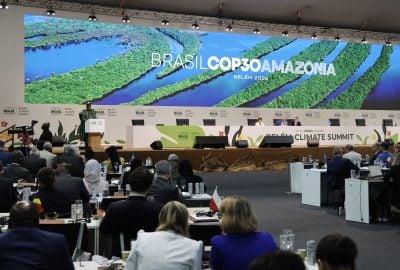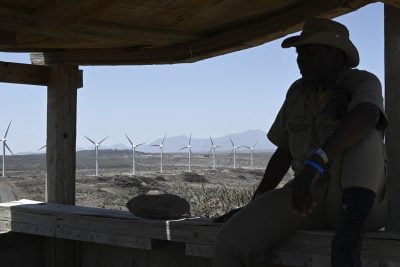Kenya’s booming geothermal sector has hit another milestone with the signing of a memorandum of understanding between local data centre company EcoCloud and Abu Dhabi-based technology firm G42 to build a data centre that will run purely on geothermal energy.
The facility has an initial planned capacity of 100 MW, with the potential to expand to 1 GW, according to the two companies.
Data centres require huge amounts of electricity, especially with the growing use of power-hungry AI-based applications. Any interruption to electricity supply has potentially critical implications for their operations.
In fact, the growing share of electricity consumed by data centres has become a controversial issue in many parts of the world. Data centre operators globally are under pressure to provide green solutions to counter criticisms over their environmental impact.
This is where geothermal energy can be a potential solution.
Geothermal power, which is harnessed from superheated pools of water and steam created by magma flows beneath the Earth’s surface, is fully renewable and provides a ‘baseload’ supply of electricity – unlike solar or wind power, which can only offer intermittent supply.
Speaking at the signing ceremony, which was witnessed by President William Ruto, EcoCloud’s CEO Amos Siwoi said: “By harnessing the power of geothermal energy, we are not only meeting the region’s data needs but also setting a new standard for eco-friendly infrastructure. This partnership underscores our dedication to a greener, more sustainable future for Africa and beyond.”
Power of the Earth
Kenya is far ahead of any other country in Africa in developing its geothermal resources, having brought several large-scale power stations online in recent years.
Consulting firm Rystad estimates that Kenya is now producing 6.5 Terrawatt hours (TWh) of electricity from geothermal sources, up from just 1.6 TWh in 2010. Geothermal now contributes around half of the country’s total electricity supply.
Vast reserves remain untapped, however. To make exploiting this potential financially viable – given the significant capital investment required for geothermal drilling campaigns – an industrial off-taker is often needed. In this respect, a data centre operator can be an ideal customer for a geothermal developer, since it is in a position to agree a long-term contract for a consistent supply of power. Any surplus electricity can potentially be sold to the national grid, or to other industrial customers.
Geothermal energy is used in many countries to provide power, heating or cooling to facilities such as greenhouses or fish farms. In Kenya, several companies are already experimenting with using geothermal power to capture carbon dioxide via ‘direct air capture’ machines that filter CO2 from the atmosphere. The country’s power utility GenKen is also looking for anchor tenants in several planned industrial parks to be powered through geothermal sources.
Meanwhile, the entry of G42 into the project is the latest in an increasingly long list of recent examples of investors from the Gulf region tapping into the African market. Data from market intelligence firm fDi Markets shows that Africa received greenfield investment pledges totalling $53bn from the Gulf Cooperation Council countries last year.
Want to continue reading? Subscribe today.
You've read all your free articles for this month! Subscribe now to enjoy full access to our content.
Digital Monthly
£8.00 / month
Receive full unlimited access to our articles, opinions, podcasts and more.
Digital Yearly
£70.00 / year
Our best value offer - save £26 and gain access to all of our digital content for an entire year!
 Sign in with Google
Sign in with Google 



